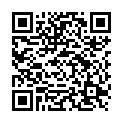|
|
|
| Module code: WIB21-340 |
|
|
2V+2U (4 hours per week) |
|
5 |
| Semester: 3 |
| Mandatory course: yes |
Language of instruction:
German |
Assessment:
Exam
[updated 30.04.2025]
|
Exam recurrence:
The information regarding exam recurrence is found within the exam policy of the study programme (ASPO).
|
WIB21-340 (P450-0287) Industrial Engineering, Bachelor, ASPO 01.10.2021
, semester 3, mandatory course
WINF-B23-150 (P460-0005) Digital Business and IT, Bachelor, SO 01.10.2023
, semester 1, mandatory course
WINF-B25-160 (P460-0005) Digital Business and IT, Bachelor, SO 01.10.2025
, semester 1, mandatory course
|
60 class hours (= 45 clock hours) over a 15-week period.
The total student study time is 150 hours (equivalent to 5 ECTS credits).
There are therefore 105 hours available for class preparation and follow-up work and exam preparation.
|
Recommended prerequisites (modules):
None.
|
Recommended as prerequisite for:
WIB21-440 Programming Project
WIB21-520
WIB21-530
[updated 21.04.2025]
|
Module coordinator:
Prof. Dr. Daniel F. Abawi |
Lecturer:
Prof. Dr. Daniel F. Abawi
Michael B. Schmidt
[updated 21.04.2025]
|
Learning outcomes:
Principles of computer science:
After successfully completing this module students will:
• be able to explain and categorize basic computer science knowledge with a focus on “practical computer science”
• be able to understand and describe the basic structure of programs
• be able to explain and partially implement the conversion of a business problem into an algorithm, from modeling to technical implementation
Programming:
After successfully completing this module, students will:
• be able to independently integrate practical, business-related tasks into a programmable implementation concept
• be able to map processes and structures using Unified Modeling Language (UML) and model business processes accordingly
• gain practical experience in using the object-oriented programming language Python
[updated 30.04.2025]
|
Module content:
Principles of computer science:
1. History and sub-areas of computer science
2. Storing and interpreting information / encodings
a. Positional number systems
b. Computing with dual numbers
c. Data compression
d. Fault-tolerant codes
3. From program to machine program
4. Programming languages
a. Data types and operators
b. Control structures
c. Propositional logic
d. Object orientation
5. Data structures and algorithms
6. Computer networks and the WWW
7. Software engineering
a. UML diagrams (static and dynamic behavior of information systems)
b. Process models
Programming:
Basics
1. Objects and classes
2. Data types and basic operators
3. Class definitions and inheritance
4. Object interaction
5. Control structures
6. Using class libraries
7. Class design
8. Structured design of simple programs
9. Elements of software engineering
10. Documentation and tools for teamwork
[updated 30.04.2025]
|
Teaching methods/Media:
Principles of computer science:
Projector, slides, exercises, lecture notes
Programming:
Projector, slides (lecture notes), independent and guided exercises and sample solutions. Only open source software will be used.
[updated 30.04.2025]
|
Recommended or required reading:
Principles of computer science:
• Herold, H.; Lurz, B.; Wohlrab, J.: Grundlagen der Informatik, Pearson Studium Verlag, 2017
• Hartmut, Ernst: Grundkurs Informatik, 4. Auflage, Vieweg+Teubner Verlag, 2016
• Your own lecture notes
Programming:
• Herold, H.; Lurz, B.; Wohlrab, J.: Grundlagen der Informatik, Pearson Studium Verlag, 2017
• Your own lecture notes
Further recommendations regarding literature or for example, web articles will be made by the lecturer in the course.
[updated 30.04.2025]
|

